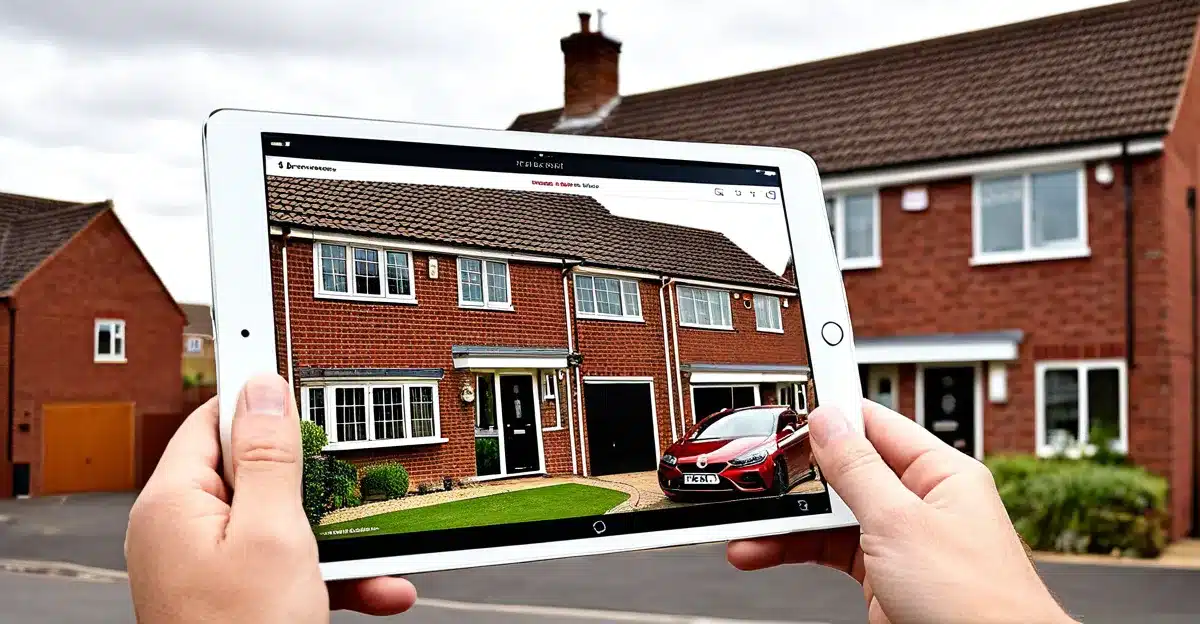Overview of Alternative Financing Methods in the UK Property Market
Exploring innovative ways to fund your property dreams
Alternative property financing refers to non-traditional mortgages and funding options outside conventional bank loans. As UK real estate trends shift, more buyers seek flexibility and accessibility, turning to these innovative solutions.
Additional reading : What impact do interest rate changes have on UK mortgage markets?
Popular alternative financing methods include crowdfunding, where multiple investors pool funds for a property purchase, and peer-to-peer lending, connecting borrowers directly with individual lenders for competitive rates. Other options like rent-to-own offer a pathway to homeownership by applying rent payments toward the purchase price, while shared ownership enables buyers to purchase a portion of a property and pay rent on the remainder.
These methods provide access for buyers who may struggle with traditional mortgage criteria or wish to diversify funding sources. Recent years have seen significant growth in the adoption of alternative property financing in the UK, driven by rising house prices and stricter mortgage lending regulations. Understanding these non-traditional mortgages can empower buyers to find tailored financial solutions aligned with their circumstances.
Additional reading : What are the key factors driving UK property investment growth?
Key Differences Between Traditional Mortgages and Alternative Financing
Understanding the evolving landscape of property purchase financing UK
When comparing traditional mortgages vs alternative financing, the key differences revolve around eligibility, application processes, and funding sources. Traditional mortgages often require stringent credit checks, proof of stable income, and a lengthy application, which can limit access to many buyers, particularly first-time buyers and investors. In contrast, alternative financing offers more flexible eligibility criteria, sometimes requiring less documentation and quicker approvals.
These distinctions directly impact buyers’ access to property. Traditional mortgages usually come from banks or building societies, while alternative financing may involve private lenders or peer-to-peer platforms. The latter can reduce barriers for individuals who might struggle with conventional credit requirements.
For first-time buyers and investors, alternative financing presents new opportunities but with varied interest rates and terms. It’s important to carefully evaluate the costs and benefits of each option. In the dynamic UK market, understanding these differences in property purchase financing UK empowers buyers to choose the path that best suits their financial situation and goals.
Benefits of Alternative Financing for Property Buyers
Unlocking new possibilities in property investment
Benefits of alternative financing stand out especially for buyers who face challenges with conventional mortgage routes. These financing methods offer improved access for individuals with non-traditional financial backgrounds, such as self-employed professionals or those with irregular incomes, where standard criteria might be restrictive.
One primary advantage lies in faster and more flexible transaction processes. Alternative financing often bypasses lengthy bank procedures, enabling quicker decisions and closing periods. This agility can be crucial in competitive housing markets, allowing homebuyers to secure their desired properties without undue delays.
Additionally, alternative financing opens doors to opportunities like fractional investment and portfolio diversification. Through this approach, buyers can invest smaller amounts across multiple properties or different real estate projects, reducing risk and increasing potential returns.
Together, these benefits enhance the overall buying experience for many, making property investment more inclusive and adaptable. For those exploring homebuyer advantages UK, understanding alternative financing can provide a strategic edge in today’s dynamic property landscape.
Risks and Considerations Associated With Alternative Financing
When exploring alternative financing options, it’s crucial to understand the associated risks. One primary factor is the regulatory uncertainties within the UK property market regulation. Unlike traditional lenders, some newer financial platforms may operate with less oversight, which can increase exposure to unexpected changes in compliance requirements. This uncertainty calls for thorough due diligence before committing funds.
Another consideration is the potential for higher interest rates. Alternative financing often carries variable terms, resulting in fluctuating repayment amounts that can strain financial planning. Borrowers must carefully review contract details to avoid surprises.
Additionally, newer financial platforms come with specific market risks. As these platforms may lack an extensive track record, their long-term viability can be uncertain, affecting both borrowers and investors. Understanding platform stability and customer reviews can provide helpful insights.
In summary, navigating the risks of alternative financing involves balancing interest rates, regulatory context, and market reliability to make informed decisions that align with your financial goals.
Current Trends and Data on Adoption in the UK
Recent data indicates a significant rise in alternative finance adoption statistics within the UK property market. Crowdfunding and peer-to-peer (P2P) lending platforms have seen notable growth, capturing increasing interest from investors and property buyers alike. According to industry reports, there has been an annual growth rate exceeding 20% for these platforms over the past five years.
Buyer demographics reveal fascinating patterns: younger investors, often millennials, demonstrate a preference for crowdfunding due to lower entry costs and increased accessibility. In contrast, traditional property investors remain cautious but are gradually incorporating P2P finance tools, recognizing their diversification benefits. This shift highlights evolving preferences within the UK property market trends.
Experts predict that adoption rates will continue to climb as technology improves and regulatory frameworks become more supportive. Industry analysts foresee that by 2027, alternative finance could account for a substantial share of property transactions, driven by digital innovation and increased consumer confidence. These trends underscore a broad transition towards more flexible, accessible finance options in the UK’s evolving property market.
Case Studies Highlighting Transformative Effects
Exploring property finance case studies reveals how innovative property purchases UK have reshaped buyers’ lives and local communities. For instance, several individuals who leveraged alternative finance solutions secured properties that traditional lenders might decline. These creative financing methods unlocked opportunities that otherwise remained out of reach.
One notable example involves a buyer acquiring a residential property in a regeneration area using bridging loans. This enabled swift acquisition and subsequent renovation, greatly boosting the property’s value and revitalizing the neighbourhood. Such innovative property purchases UK don’t just transform individual circumstances—they spark wider economic growth.
These property finance case studies also underline crucial lessons for aspiring buyers. Importance lies in understanding the terms of alternative finance options and assessing risk carefully. Proper use of solutions like bridging loans or peer-to-peer lending can expedite deals and overcome common hurdles such as poor credit or unusual property types.
In summary, these examples prove that embracing alternative routes in UK property finance can be a game-changer. Future investors should study these transformative effects to make informed, strategic decisions and maximise opportunities in today’s competitive market.
Comparing Expert Perspectives on the Future of Property Financing
Experts in property finance increasingly emphasize sustainability and scalability as central to the future of the UK property market. Leading voices suggest that financing models must adapt to support environmentally responsible building practices, which will affect long-term valuations and investment appeal. This shift is crucial as regulatory frameworks evolve, requiring developers and financiers to align with green standards.
Discussions among property finance experts also highlight a pressing need for clearer regulation. Ambiguities in current policies can deter investment and create market inefficiencies. Experts urge policymakers to provide transparent guidelines that support innovation without compromising consumer protections. Clarified regulations would enable smoother transactions and greater confidence among investors.
Technological advancements are reshaping how property financing operates. The use of AI models and blockchain for secure, efficient transactions is becoming more commonplace. Experts note that integrating technology will enhance accuracy in credit assessments and reduce processing times, offering a more scalable and adaptive financing environment. As these tools mature, they are set to become indispensable in navigating the complexities of the future UK property market.




